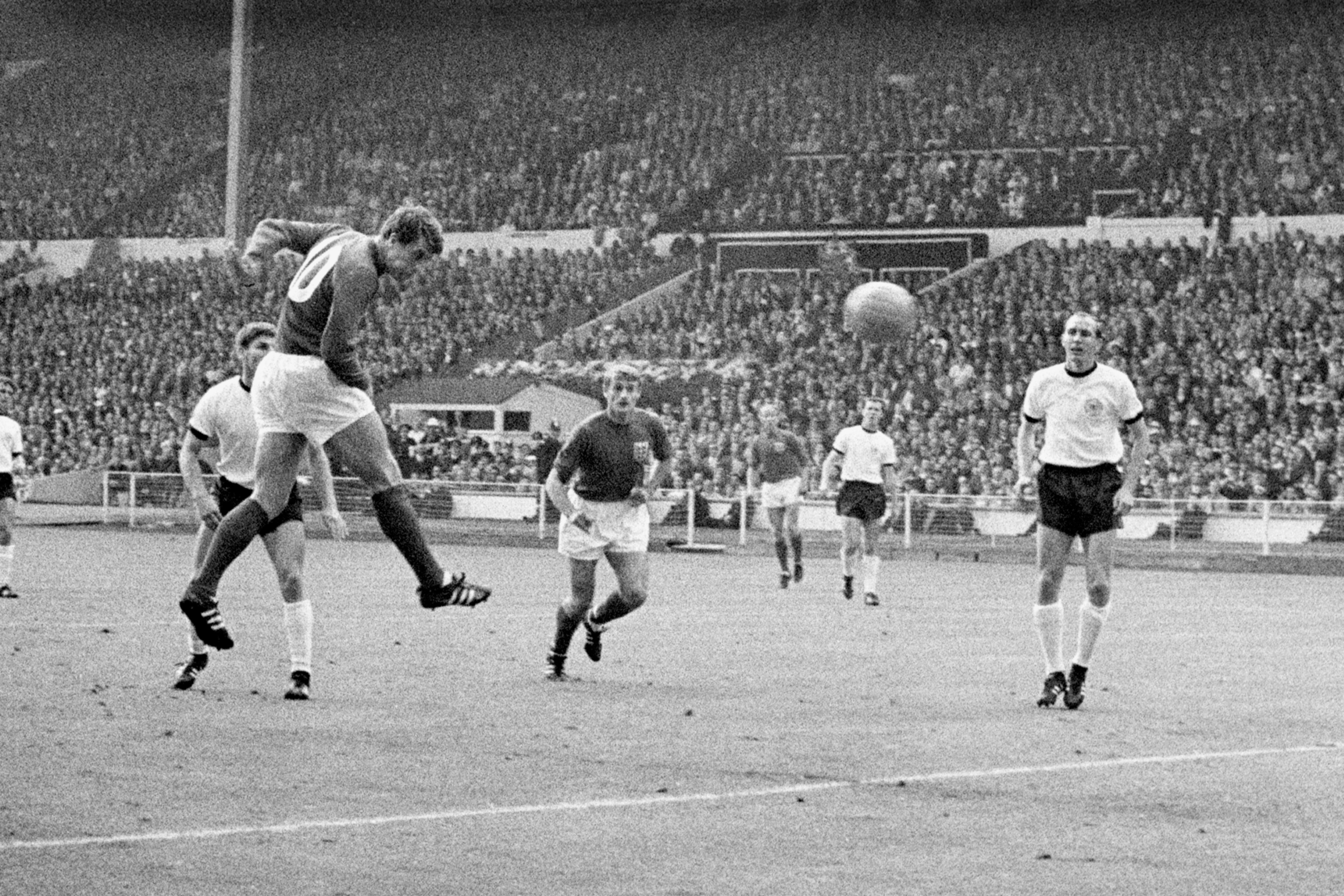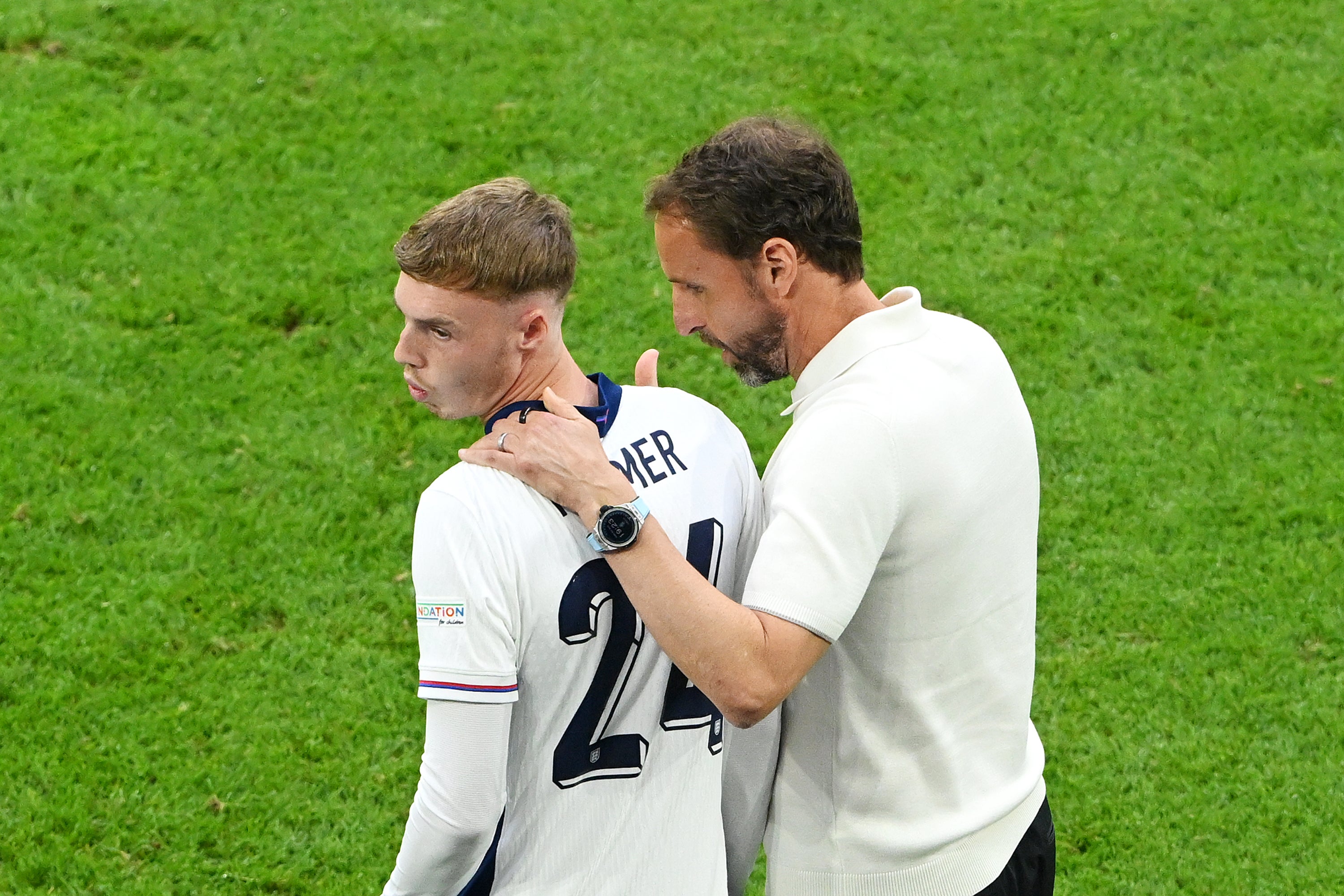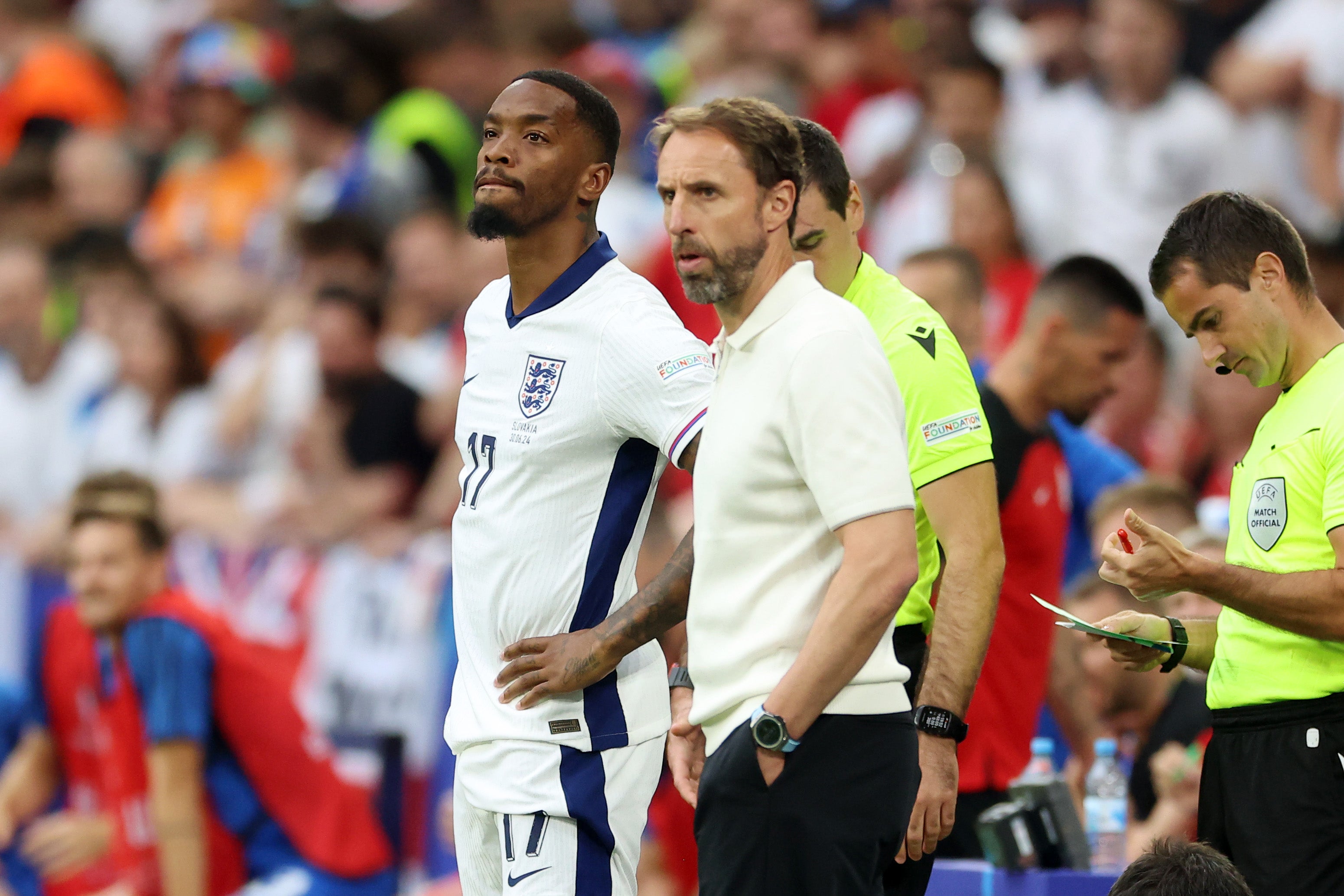How Southgate hopes the lessons of 1966 can inspire success at Euro 2024
As the Three Lions scrape through to the quarter-finals, Gareth Southgate is drawing on history to keep his whole squad of players hungry, writes Richard Jolly


It was 30 years of hurt when Gareth Southgate stepped up and missed a penalty and it was about to become at least 60 until Jude Bellingham attempted an overhead kick. Southgate makes no secret of his ambitions to emulate Sir Alf Ramsey, to double the number of trophy-winning managers in England’s history. He looks to the past to provide inspiration and lessons alike. If 1966 has become a profitable nostalgia industry, it is so long ago that many of the England players’ parents were not born. They could be forgiven for not knowing all the details.
At St George’s Park, before England ventured to Germany, Southgate turned back time. “We showed the players a presentation about 1966 and how Geoff Hurst hadn’t played until the quarter-final.” Hurst ended up the hat-trick hero in the final and if that scarcely needs explaining, some of Southgate’s charges may not know that a man who achieved immortality had entered the 1966 World Cup with a lone international goal to his name.
Plans can change en route, fringe figures can assume central roles. The path to glory is not always smooth, even if England contrived to make it look remarkably bumpy as they squeezed past Slovakia.
England have found an unconvincing way to win their group and have looked unimpressive on their route to the quarter-finals of Euro 2024. The manner of it leaves Southgate admitting they have to be better. The history lesson was to inform his charges that it might not be easy. “We just wanted to highlight that tournaments take you in strange places and difficult routes so it was just a bit of perspective,” he said.

He talked of footballers playing different roles; perhaps Jimmy Greaves was an inappropriate example, given that injury meant he lost his place to Hurst and was defined by it forever after. He cited the support the former captain Jimmy Armfield provided Ramsey’s side off the field; Southgate has always valued the non-playing squad members.
Some of them, though, have just become playing squad members. “Ivan Toney had the hump with me for putting him on,” said Southgate; the Brentford striker thought it a thankless task. “I could understand it, I am putting him on with a minute to go, any player could think, ‘I have been sat here for the tournament and you have not used me’ but I said, ‘There could be one moment’.” There was: for Toney in extra time, teeing up Kane’s winner. None of which makes him Geoff Hurst Mk II but he is a viable plan B.
Not least because Southgate is sticking with plan A. He decided to carry on with his eventual rescuer, Bellingham, and match-winner when the team were trailing and they were ineffectual. “Harry and Jude, you are looking and thinking, ‘Should we be refreshing those positions?’” Southgate said. “But you know they are capable of doing what they did.” Which, in Bellingham’s case, was spectacular. He and Kane ended the night as auxiliary members of the coaching staff, urging their teammates on. “They knew we had to take them off,” Southgate added. “They had run their race. They couldn’t run any more so they used their voices instead. They were then in the hands of the rest of the squad but that is a really powerful moment for the group, when they feel they are trusted in those moments.”

For Cole Palmer and Eberechi Eze, who have been on the outside looking in, there was the sense their cameos could bring further outings. For Ezri Konsa, the last of England’s four left-backs of the night, there could be an opening in the middle of the defence: he, Lewis Dunk and Joe Gomez are the candidates to replace Marc Guehi, who is banned for the quarter-final against Switzerland.
“I think pretty much all the changes we have made this tournament have had an impact,” said Southgate. The counterargument is that none of the starting 11s really have. A lesson from 1966 is that change can bring the winning formula: Ramsey used a winger in each of the three group games, whether John Connelly, Terry Paine or Ian Callaghan; come the knockout stages, the team became his “wingless wonders”.

Southgate is conscious, too, that, England do not always start tournaments auspiciously. They began with a draw in 1996, as they did in 1966. “The [World Cup-winning] team wasn’t always flying, the team was criticised at the start,” he said. The dramatic timing of Bellingham’s equaliser, meanwhile, offered parallels with David Platt’s extra-time winner against Belgium in the 1990 World Cup.
Previous campaigns in which the team went deep into the tournament, for the most part, had shown tangible evidence of progress by this stage. This year’s model have shown precious little beyond what was already known: that they possess some world-class players capable of conjuring magical moments.

“Everyone will understandably be still questioning our performances,” he said. “We know the level of our game will have to be higher but a spirit and a togetherness has been building.” England had that in 1966. But they also had more cohesion on the pitch, more conviction in their performances and more indications they were on the path to glory. Southgate can be England’s history teacher but 1966 still looks like it will remain the outlier for the national team.



Join our commenting forum
Join thought-provoking conversations, follow other Independent readers and see their replies
Comments